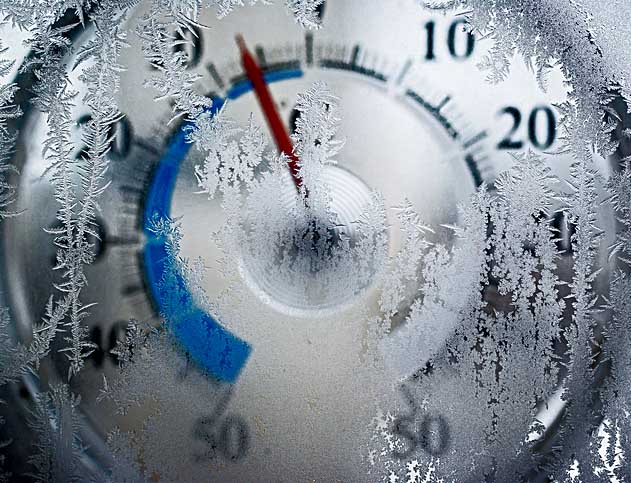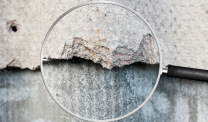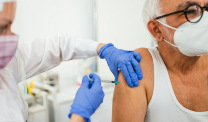Cryoablation Study for Mesothelioma Opening at UCLA
Research & Clinical TrialsWritten by Tim Povtak • Edited By Walter Pacheco
Asbestos.com is the nation’s most trusted mesothelioma resource
The Mesothelioma Center at Asbestos.com has provided patients and their loved ones the most updated and reliable information on mesothelioma and asbestos exposure since 2006.
Our team of Patient Advocates includes a medical doctor, a registered nurse, health services administrators, veterans, VA-accredited Claims Agents, an oncology patient navigator and hospice care expert. Their combined expertise means we help any mesothelioma patient or loved one through every step of their cancer journey.
More than 30 contributors, including mesothelioma doctors, survivors, health care professionals and other experts, have peer-reviewed our website and written unique research-driven articles to ensure you get the highest-quality medical and health information.
About The Mesothelioma Center at Asbestos.com
- Assisting mesothelioma patients and their loved ones since 2006.
- Helps more than 50% of mesothelioma patients diagnosed annually in the U.S.
- A+ rating from the Better Business Bureau.
- 5-star reviewed mesothelioma and support organization.
Testimonials
My family has only the highest compliment for the assistance and support that we received from The Mesothelioma Center. This is a staff of compassionate and knowledgeable individuals who respect what your family is experiencing and who go the extra mile to make an unfortunate diagnosis less stressful. Information and assistance were provided by The Mesothelioma Center at no cost to our family.LashawnMesothelioma patient’s daughter
How to Cite Asbestos.com’s Article
APA
Povtak, T. (2023, September 28). Cryoablation Study for Mesothelioma Opening at UCLA. Asbestos.com. Retrieved April 25, 2024, from https://www.asbestos.com/news/2020/07/01/cryoablation-mesothelioma-ucla-clinical-trial/
MLA
Povtak, Tim. "Cryoablation Study for Mesothelioma Opening at UCLA." Asbestos.com, 28 Sep 2023, https://www.asbestos.com/news/2020/07/01/cryoablation-mesothelioma-ucla-clinical-trial/.
Chicago
Povtak, Tim. "Cryoablation Study for Mesothelioma Opening at UCLA." Asbestos.com. Last modified September 28, 2023. https://www.asbestos.com/news/2020/07/01/cryoablation-mesothelioma-ucla-clinical-trial/.

Researchers at UCLA Jonsson Comprehensive Cancer Center will soon begin studying the pre-surgery use of cryoablation as a potential early adjuvant therapy for patients with pleural mesothelioma.
The pilot study will measure immune system stimulation through local tumor infiltration in hopes of extending patient survival in the future.
Cryoablation, also known as cryotherapy or cryosurgery, freezes localized tumors with liquid nitrogen or argon gas. It has been proven effective in killing tumor cells with extreme cold.
It is currently used on kidney, liver and prostate cancers, but its use in priming a person’s own immune system to fight cancer is still being explored with various malignancies.
“The idea is possibly buying additional time after surgical resection by minimizing chances of recurrence, or giving the body a head start in fighting that recurrence,” Dr. Neema Jamshidi, diagnostic radiologist at UCLA, told The Mesothelioma Center at Asbestos.com. “We hope to better understand the effect of cryoablation with mesothelioma.”
Cryoablation Clinical Trial Opening Soon
Jamshidi is the principal investigator of the one-center mesothelioma clinical trial that is expected to begin recruiting patients by the end of July.
UCLA works closely with the Pacific Mesothelioma Center — a world leader in the treatment of this aggressive cancer — and renowned thoracic surgeon Dr. Robert B. Cameron.
The cancer center at UCLA is one of the few specialty centers that has used cryoablation effectively in the past for mesothelioma. Doctors there have used it to fight an almost-inevitable recurrence, but only after standard-of-care mesothelioma treatment that included surgery, chemotherapy and radiation.
This latest trial will involve potential surgical patients undergoing 30 minutes of cryoablation at the time of a standard-of-care pleural mesothelioma biopsy.
During subsequent surgery, samples will be collected from both ablated regions and non-ablated regions to help evaluate the cryo-immune stimulation in mesothelioma.
Jamshidi hopes to enroll at least 20 patients into the study.
“This is about exploring the effects of cryoablation,” he said. “There are no promises that it will help a patient or not at this point. We know that when there are recurrent lesions, cryoablation can kill the tissue. We want to know if there are additional benefits.”
Still Searching for a Mesothelioma Breakthrough
Mesothelioma, which is caused by exposure to asbestos, is a rare cancer with no cure. Median survival after diagnosis is less than one year and only 25% of the patients even qualify for mesothelioma surgery. Too often, the cancer has metastasized before it is diagnosed.
“Malignancies that have these poor outcomes create big challenges and opportunities,” Jamshidi said. “This is one of those areas. An adjuvant like this before surgery could prime the body to develop antibodies against it.”
A search for new therapies to fight mesothelioma has been frustrating for many years.
The U.S. Food and Drug Administration approved the use of Tumor Treating Fields, a therapy using electrical fields to limit cancer growth, in 2019. It was the first new approval in 15 years for mesothelioma. The FDA approved pembrolizumab (Keytruda) for certain metastatic tumors, including mesothelioma, earlier this year.
Although immunotherapy treatment has been a huge advancement for many cancers, only a small percentage of patients with mesothelioma benefit.
Earlier studies, for example, have shown less than 20% of mesothelioma patients have high levels of the protein that pembrolizumab can target effectively to stop the cancer.
“We know that using the immune system to help fight cancer can work for some. Drugs can do it sometimes, but we also think that something like cryoablation has the potential of doing it, too,” Jamshidi said. “This [study] is looking at another tool we have to try and stimulate the body’s own defenses to attack the cancer.”
The Mayo Clinic in Rochester, Minnesota, is nearing completion of a small but similar cryotherapy trial for mesothelioma that has studied the safety and effectiveness of cryotherapy as part of a multidisciplinary approach to treatment.
Those results should be available early in 2021.







